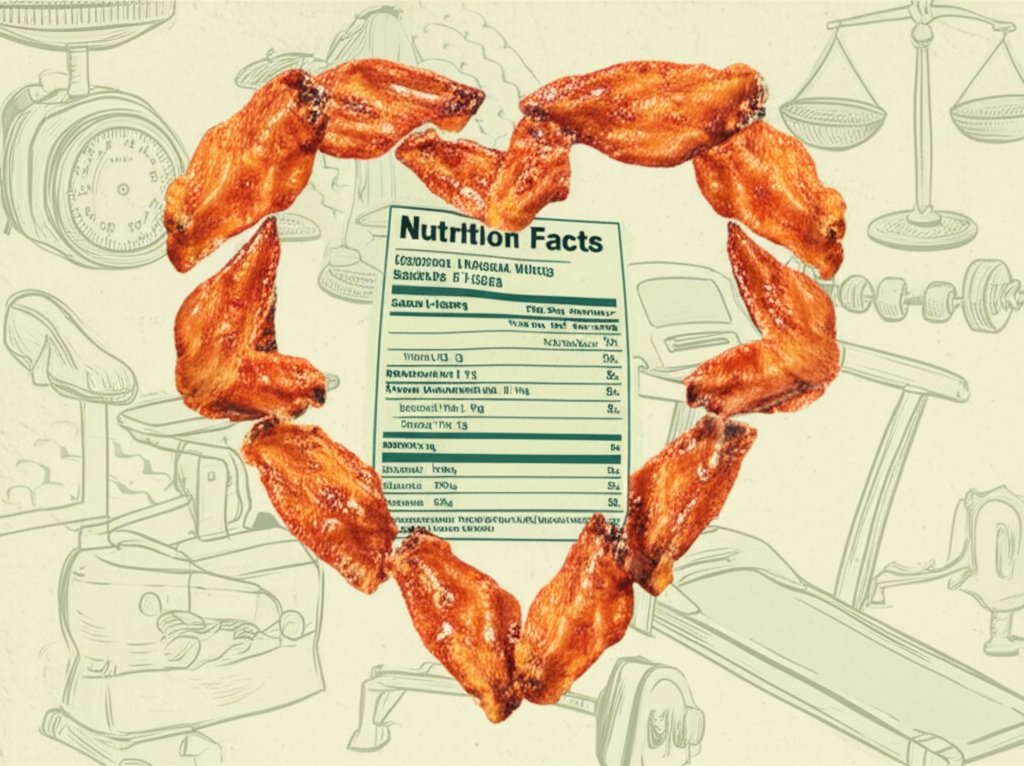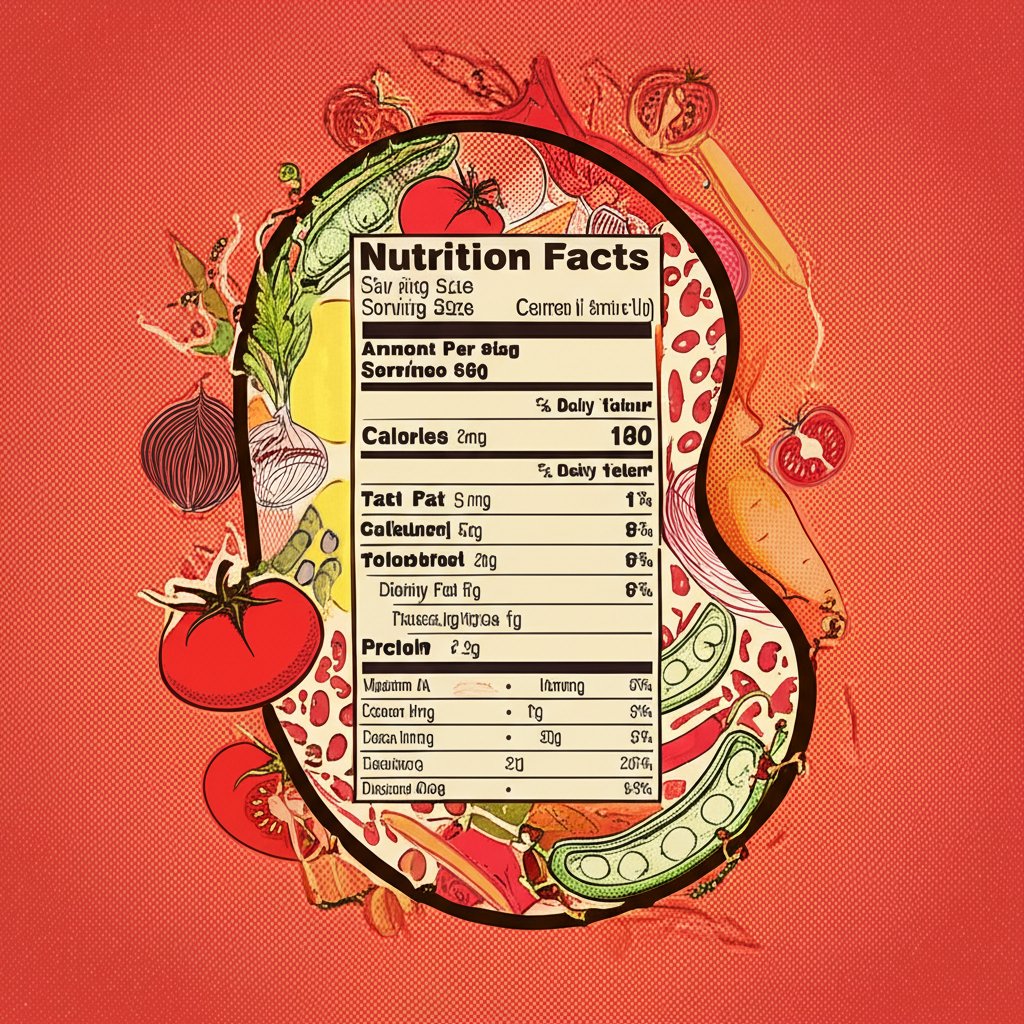Craving a comforting side dish that’s both budget-friendly and packed with flavor? Baked beans might be your go-to, conjuring up images of summer barbecues and hearty breakfasts. But beyond their delicious taste, what do you really know about baked beans nutrition facts and their impact on your health? Let’s dive into the specifics of this popular pantry staple and uncover whether they deserve a regular spot on your plate.
At a glance:
- Baked beans are a good source of protein and fiber.
- They can contribute to gut health and help lower cholesterol.
- Commercially canned versions often contain added sugars, salt, and additives.
- Making baked beans from scratch lets you control the ingredients.
- Enjoying baked beans in moderation, as part of a balanced diet, can be beneficial.
The Humble Bean: A Nutritional Powerhouse?
At their core, baked beans are simply legumes cooked in a flavorful sauce. Typically, navy beans – small, white beans also known as haricot beans – are the star of the show. These beans, native to South America, made their way to Europe in the 16th century and have since become a staple in many cuisines.
Beans, in general, are nutritional superstars. They’re low in fat and calories, yet incredibly high in fiber and protein. The consumption of beans and pulses is linked to a reduction in low-density lipoprotein (LDL) or “bad” cholesterol levels. But what about specifically when they are baked?
Baked Beans Nutrition Facts: A Detailed Breakdown
While the exact nutritional profile can vary by brand and recipe, here’s a look at the typical nutritional values you can expect from a 1/2-cup (130-gram) serving of canned vegetarian baked beans:
| Nutrition | Amount | % Daily Value (DV) |
|---|---|---|
| Calories | 130 | |
| Protein | 6.01 grams | |
| Carbohydrates | 25 grams | 8% |
| Fiber | 5.98 grams | 25% |
| Sugars | 10 grams | |
| Calcium | 59.8 mg | 6% |
| Iron | 1.79 mg | 10% |
| Sodium | 480 mg | 20% |
| Note: Daily Values are based on a 2,000-calorie diet. |
The Good Stuff: Health Benefits of Baked Beans

Baked beans offer a range of potential health benefits, making them a worthwhile addition to a balanced diet when consumed mindfully.
Fiber Power for Gut Health
Just a 1/2 cup serving of baked beans packs a significant punch of fiber – roughly 25% of your daily recommended intake. Fiber is crucial for maintaining a healthy digestive system, preventing constipation, and promoting regular bowel movements.
But the benefits don’t stop there. Fiber also acts as a prebiotic, nourishing the beneficial bacteria in your gut. This supports a balanced gut microbiome, which is increasingly linked to overall health and well-being. These microbes may even help in reducing colon cancer risk!
Cholesterol Control
Baked beans contain soluble fiber and compounds called phytosterols, both of which can help lower cholesterol levels. These components work by inhibiting cholesterol absorption in your gut, potentially reducing your risk of heart disease.
Studies have shown that regular consumption of baked beans can lead to significant reductions in total and LDL (“bad”) cholesterol. One study, for instance, showed that adults with high cholesterol who consumed 1/2 cup of baked beans daily for two months experienced a 5.6% decrease in total cholesterol.
Plant-Based Protein Source
For vegetarians and vegans, finding reliable sources of protein can be a challenge. Baked beans offer a convenient and affordable way to boost your protein intake. Protein is essential for building and repairing tissues, supporting muscle growth, and maintaining overall health. You might also consider other plant-based protein sources, such as Baked Wings: Nutrition Breakdown, to supplement your diet.
Rich in Essential Nutrients
Beyond fiber and protein, baked beans are also a good source of essential vitamins and minerals, including iron, zinc, folate (a B vitamin), potassium, and magnesium. These nutrients play vital roles in various bodily functions, contributing to energy production, immune function, and overall well-being.
The Not-So-Good Stuff: Potential Drawbacks to Consider
While baked beans offer numerous health benefits, it’s important to be aware of their potential drawbacks, particularly when it comes to commercially canned varieties.
Sugar Overload
One of the biggest concerns with store-bought baked beans is their high sugar content. To achieve that characteristic sweet and tangy flavor, manufacturers often add significant amounts of sugar, molasses, or other sweeteners.
A 1/2-cup serving of baked beans can contain as much as 3 teaspoons (12 grams) of added sugars, which is 20% of the daily recommended limit for a 2,000-calorie diet. Consuming too much added sugar can lead to a host of health problems, including tooth decay, weight gain, heart disease, and type 2 diabetes.
Sodium Content
Another potential downside is the high sodium content of canned baked beans. Sodium is added to enhance flavor and act as a preservative. A 1/2-cup serving can contain around 20% of your daily recommended sodium intake.
While sodium is essential for maintaining fluid balance and nerve function, consuming too much can contribute to high blood pressure, increasing your risk of heart disease and stroke.
Additives and Preservatives
To extend shelf life and enhance flavor, many brands of baked beans contain various additives and preservatives. These can include modified corn starch (often derived from genetically modified corn), caramel color (which may contain a potential carcinogen), and “natural flavors” (which can be vague and potentially allergenic). Some people might prefer to avoid these additives.
BPA Concerns
The lining of many food cans, including those used for baked beans, contains bisphenol A (BPA), a chemical that has been linked to various health concerns, including obesity and reduced fertility. BPA can leach into the food from the can lining, potentially exposing you to this chemical. Look for organic brands that sell products in BPA-free packaging, though these often come at a higher price.
The Gassy Factor
Beans are notorious for causing gas and bloating in some people. This is due to the presence of indigestible carbohydrates that are fermented by bacteria in the gut, producing gas as a byproduct. However, the good news is that most people adapt to eating beans regularly, and the gassy effects tend to subside over time. Many find that soaking beans before cooking reduces this effect.
Making the Healthiest Choice: Tips for Enjoying Baked Beans
Despite the potential drawbacks, you can still enjoy baked beans as part of a healthy diet by making informed choices:
- Read Labels Carefully: Pay close attention to the nutrition facts label, focusing on sugar and sodium content. Choose brands with lower amounts of these ingredients.
- Opt for Reduced-Sodium Varieties: Look for baked beans specifically labeled as “reduced sodium” or “low sodium.”
- Rinse Canned Beans: Rinsing canned beans before cooking can help reduce their sodium content by as much as 40%.
- Make Your Own! The best way to control the ingredients in your baked beans is to make them from scratch. This allows you to adjust the amount of sugar, salt, and other additives to your liking.
- Balance Your Meal: Pair baked beans with other healthy foods, such as vegetables, eggs, and whole-grain bread, to create a balanced and nutritious meal. Consider a balanced dessert as well, such as understanding Banana Pudding Nutritional Information.
- Start Slowly: If you’re not used to eating beans, start with small portions and gradually increase your intake to avoid digestive discomfort.
Baked Beans: Homemade vs. Canned
The debate between homemade and canned baked beans often boils down to convenience versus control. Canned beans are undeniably convenient, offering a quick and easy meal option. However, they often come with the baggage of added sugars, salt, and preservatives.
Homemade baked beans, on the other hand, require more time and effort but allow you to customize the ingredients to your exact preferences. You can use dried beans, which are typically more affordable, and control the amount of sugar, salt, and other seasonings.
Expert Opinions: What Do the Professionals Say?

Dietitians and nutritionists generally agree that baked beans can be a healthy addition to a balanced diet, provided they are consumed in moderation and prepared with mindful attention to ingredients.
“Baked beans can be a good source of fiber and protein, which are important for satiety and digestive health,” says registered dietitian Sarah Johnson. “However, it’s important to be aware of the added sugars and sodium in canned varieties. Making your own baked beans at home is a great way to control the ingredients and ensure a healthier option.”
Recipe Ideas: Healthy and Delicious Baked Beans
Ready to try making your own baked beans? Here are a few recipe ideas to get you started:
- Classic Homemade Baked Beans: Use dried navy beans, tomato sauce, molasses, mustard, and your favorite spices.
- Slow Cooker Baked Beans: A set-it-and-forget-it option that’s perfect for busy weeknights.
- Vegetarian Baked Beans: Omit any bacon or pork for a completely vegetarian version.
Answering Your Questions About Baked Beans
Here are some common questions people have about baked beans:
Are baked beans a good source of protein?
Yes, baked beans are a decent source of plant-based protein, with about 6 grams per 1/2-cup serving.
Are baked beans high in sugar?
Canned baked beans often contain high amounts of added sugar. Check the nutrition label and choose brands with lower sugar content or make your own.
Are baked beans gluten-free?
Most baked beans are naturally gluten-free, but it’s always a good idea to check the label to ensure there are no gluten-containing ingredients added.
Can baked beans help lower cholesterol?
Yes, the fiber and phytosterols in baked beans can help lower cholesterol levels.
Do baked beans cause gas?
Beans can cause gas in some people due to their high fiber content. However, most people adapt to eating beans regularly, and the gassy effects tend to subside over time.
Making Baked Beans Work for You
Baked beans offer a blend of nutritional benefits and potential drawbacks. The key to enjoying them as part of a healthy diet lies in making informed choices and being mindful of ingredients. Choosing low-sugar and low-sodium varieties or preparing them from scratch lets you reap the health benefits without the unwanted additives. So, go ahead and savor those baked beans – just do it wisely!
- Why Glass Boxes for Lunch Are Trending for Meal Prep - December 17, 2025
- Bento Box Glass Offers Practical, Eco-Friendly Meal Storage - December 16, 2025
- The Best Bento Box Price For Your Perfect Packed Lunch - December 15, 2025










